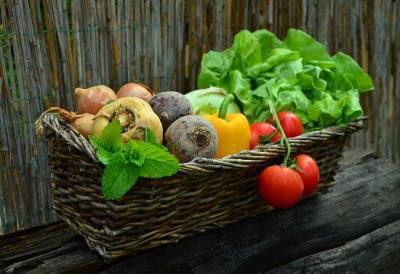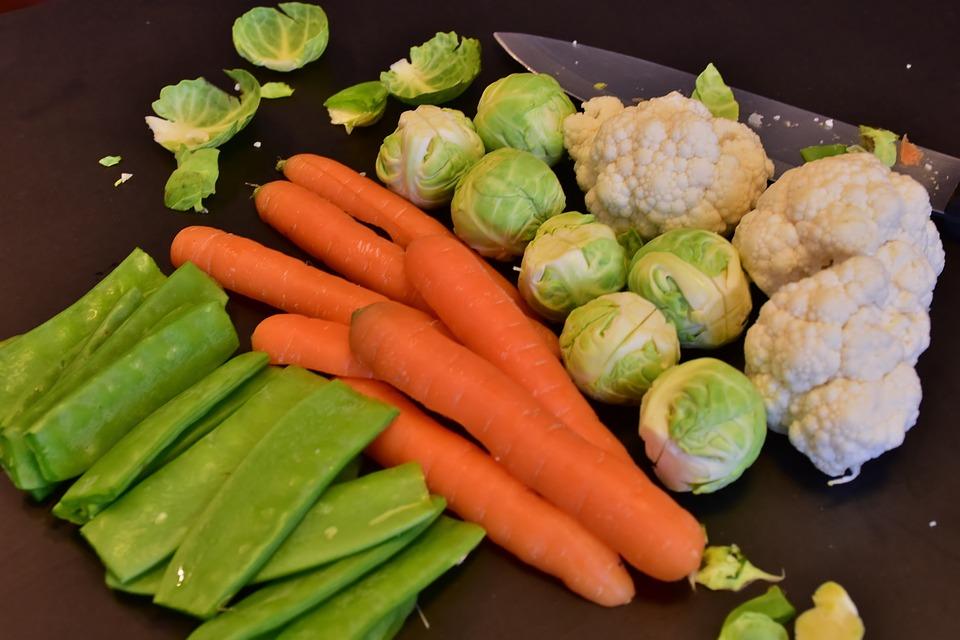Dietary fiber is a type of carbohydrate that we "do not digest". They are contained exclusively in plant foods. Despite the fact that they pass through the stomach undigested, they play an important role for our health.
First of all, dietary fibers are necessary for the proper functioning of the intestine. Use them every day, and you will forget about the "problem defecation" and meteorism. However, these are not all the advantages of dietary fibers. They are also a source of energy, they help to loose weight, they reduce the risk of cardiovascular diseases, diabetes and obesity.
Unfortunately, a lot of people do not take food seriously. For example, teenagers and young people often prefer quick junk food, but they do not think about the consequences. The dose of fibers in the daily diet should be from twenty-one to thirty-eight grams.
Dietary fibers are divided into soluble and insoluble. It is clear from the name that soluble fibers have the property of dissolving in water, turning into a gel in a digestive system. They help to control the level of cholesterol and to maintain heart health. Insoluble fibers do not dissolve in water, but pass through the digestive system practically unchanged. They improve digestion and facilitate the purification of the body.
Unfortunately, a lot of people do not take food seriously. For example, teenagers and young people often prefer quick junk food, but they do not think about the consequences. The dose of fibers in the daily diet should be from twenty-one to thirty-eight grams.
Dietary fibers are divided into soluble and insoluble. It is clear from the name that soluble fibers have the property of dissolving in water, turning into a gel in a digestive system. They help to control the level of cholesterol and to maintain heart health. Insoluble fibers do not dissolve in water, but pass through the digestive system practically unchanged. They improve digestion and facilitate the purification of the body.
Dietary fiber can be found in vegetables, herbs, berries and fruits. Of course, it is better to choose organic or farm products to get more antioxidants and fewer pesticides.
Cabbage is an excellent source of fibers. Any sort of cabbage will be fine, but most of the fibers can be found in boiled Brussels sprouts. One hundred grams contain 2.6 grams of fiber. It also contains folate, manganese, vitamins K and C.
Broccoli is very useful as well. The raw product contains the same amount of fibers - 2.6 grams, but in the prepared product, their concentration reaches 3.3 grams. Broccoli is a unique product that is used to treat and prevent various diseases.
Cabbage is an excellent source of fibers. Any sort of cabbage will be fine, but most of the fibers can be found in boiled Brussels sprouts. One hundred grams contain 2.6 grams of fiber. It also contains folate, manganese, vitamins K and C.
Broccoli is very useful as well. The raw product contains the same amount of fibers - 2.6 grams, but in the prepared product, their concentration reaches 3.3 grams. Broccoli is a unique product that is used to treat and prevent various diseases.
Artichoke is not the most popular product, but in vain. One medium-sized artichoke contains 6.8 g of dietary fiber, which is approximately 5.7 g per 100 g of product.
Dried plums are known and loved by many people. This "natural sweetness" has been used to solve problems with the intestine over the centuries. One hundred grams of dried plums contain 7.1 grams of fiber, as well as antioxidants, vitamin A, potassium and iron.
Bananas contain a high amount of fiber (3-4 grams), but one should not use them too much because they contain starch as well.
Figs are record holders of the number of useful fibers. Since fresh fruit does not grow in every region, you can find dried fruit more often on the shelves of stores. If fresh fruit contains 2.6 grams of fiber, in dried fruits their concentration increases to 10 grams. The only drawback is the high sugar content, so they should be consumed in moderation.
Dried plums are known and loved by many people. This "natural sweetness" has been used to solve problems with the intestine over the centuries. One hundred grams of dried plums contain 7.1 grams of fiber, as well as antioxidants, vitamin A, potassium and iron.
Bananas contain a high amount of fiber (3-4 grams), but one should not use them too much because they contain starch as well.
Figs are record holders of the number of useful fibers. Since fresh fruit does not grow in every region, you can find dried fruit more often on the shelves of stores. If fresh fruit contains 2.6 grams of fiber, in dried fruits their concentration increases to 10 grams. The only drawback is the high sugar content, so they should be consumed in moderation.
The Aztecs considered the avocado a sacred fruit, incredibly useful and tasty. This is not surprising, because these fruits contain folic acid, antioxidants, potassium, vitamin K, E, and a lot of dietary fibers. One hundred grams of avocado contain about six grams of fibers.
Raspberries, blackberries, cranberries and many other berries are also very useful. They are also rich in antioxidants, vitamins and minerals
In order to receive the necessary dose of fiber, you should include various beans in your daily diet: beans, lentils, peas, as well as seeds: chia, flaxseed, pumpkin seeds.
And of course, do not forget about whole-grain crops, especially oats. It is the source of soluble fibers - beta-glucans, which provide health for your heart and immune system as well as proper metabolism. A hundred grams of cooked oatmeal contain about 10.6 grams of fiber. Quinoa and buckwheat will be very useful as well.
Make your menu diversified, add more greens, vegetables and fruits to it, especially after winter when we need vitamins and nutrients. Do not neglect healthy foods, combine them with meat and cereals, and you will avoid problems with the intestines, you will make your skin and hair beautiful and shiny, and the nails strong.
Raspberries, blackberries, cranberries and many other berries are also very useful. They are also rich in antioxidants, vitamins and minerals
In order to receive the necessary dose of fiber, you should include various beans in your daily diet: beans, lentils, peas, as well as seeds: chia, flaxseed, pumpkin seeds.
And of course, do not forget about whole-grain crops, especially oats. It is the source of soluble fibers - beta-glucans, which provide health for your heart and immune system as well as proper metabolism. A hundred grams of cooked oatmeal contain about 10.6 grams of fiber. Quinoa and buckwheat will be very useful as well.
Make your menu diversified, add more greens, vegetables and fruits to it, especially after winter when we need vitamins and nutrients. Do not neglect healthy foods, combine them with meat and cereals, and you will avoid problems with the intestines, you will make your skin and hair beautiful and shiny, and the nails strong.









